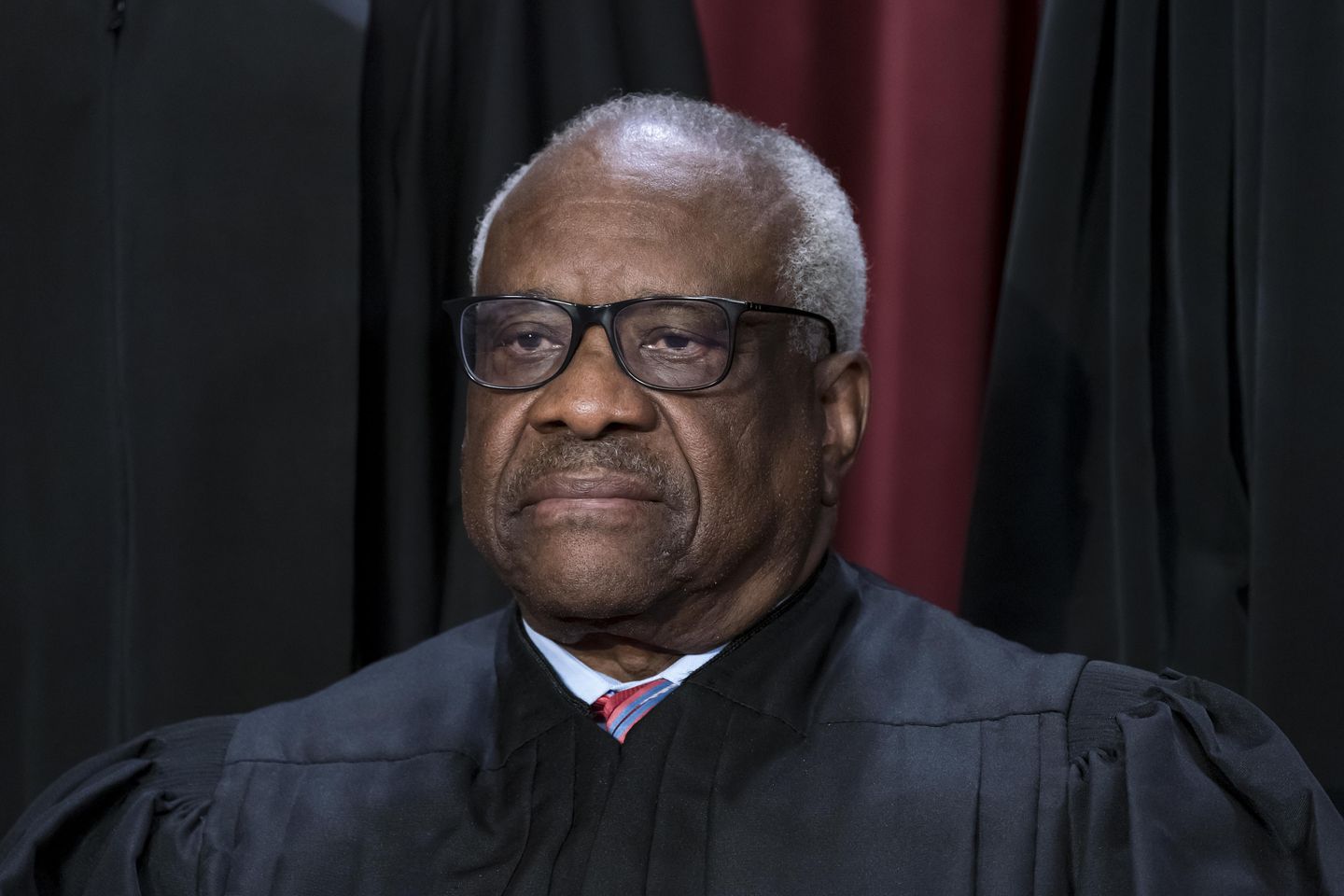The federal courts have decided not to refer allegations of potential ethics violations by Supreme Court Justice Clarence Thomas to the Justice Department, according to a statement released by the judiciary’s policymaking body on Thursday.
The decision comes after a tumultuous few weeks for Justice Thomas, who has faced mounting scrutiny over his wife’s involvement in conservative political activities. Virginia “Ginni” Thomas, a conservative activist and lobbyist, has been accused of playing a significant role in efforts to overturn the results of the 2020 presidential election.
The allegations against Justice Thomas stem from his participation in cases related to the election and other politically charged issues. Critics argue that his impartiality may have been compromised by his wife’s activities, raising questions about potential conflicts of interest.
In response to these concerns, the federal courts conducted a review of the allegations against Justice Thomas. The review included an examination of his financial disclosures, as well as an assessment of his participation in relevant cases.
After careful consideration, the judiciary’s policymaking body determined that there was insufficient evidence to warrant referring the allegations to the Justice Department for further investigation. The body emphasized that its decision was based on a thorough and impartial review of the available information.
The decision not to refer the allegations to the Justice Department is likely to spark further debate and controversy. Critics of Justice Thomas argue that the judiciary is failing to hold him accountable for potential ethics violations, while supporters maintain that he has done nothing wrong.
This latest development comes at a time of heightened scrutiny of the Supreme Court and its justices. The Court’s conservative majority has been the subject of intense criticism in recent years, particularly following controversial decisions on issues such as abortion, voting rights, and affirmative action.
Justice Thomas, in particular, has been a lightning rod for criticism due to his conservative views and the perceived influence of his wife on his judicial decision-making. Critics have called for him to recuse himself from cases involving her activities, while others have called for his impeachment.
Despite the controversy surrounding him, Justice Thomas has remained steadfast in his defense of his actions. He has maintained that he has always acted in accordance with the law and that his wife’s activities have not influenced his decisions on the bench.
The decision not to refer the allegations to the Justice Department is likely to further entrench the divide between Justice Thomas’s critics and supporters. It remains to be seen how this latest development will impact his standing on the Court and in the broader legal community.
In the meantime, the federal courts will continue to grapple with the fallout from the allegations against Justice Thomas. The decision not to refer the matter to the Justice Department raises questions about the judiciary’s ability to police its own members and maintain public trust in the integrity of the legal system.
As the debate over Justice Thomas’s conduct continues to unfold, the eyes of the legal community and the public will remain fixed on the Supreme Court and its controversial justice. Only time will tell how this latest chapter in the ongoing saga will ultimately be resolved.









